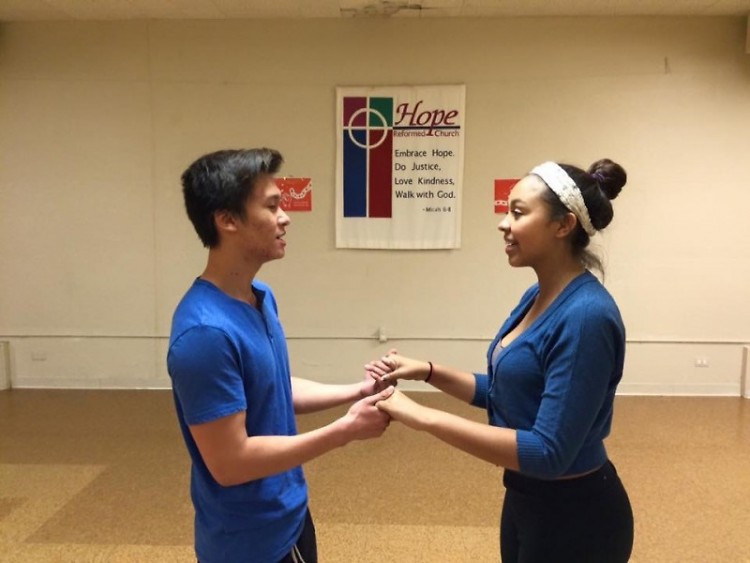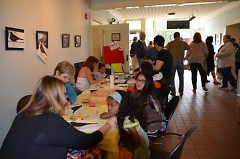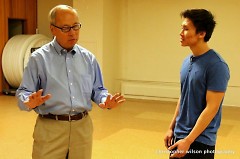Ever since I can remember I have been hopelessly in love with love. I would regularly consume the Disney fairytales as a child where men were always coming to the princess’s rescue. I had this addiction to the anime series "Sailor Moon," so much so my dad at 66 can still perform the transformations on a whim (yes, a 6’4” black man was spinning in my living room recounting this experience) – necessary details. Love was socialized for me the way everything else we consume is – without context and understanding. I understood what I was seeing; I had no concept of what I was feeling. I would come to find in my adult exploration that love is far more nuanced. Love is everything we cannot explain; it defies logic and taps into something more profound – that one thing that sets the human experience apart from every other species.
At 26 every logical and illogical piece of my existence had fallen in love with an incredible man. I had literally never met someone so empathetic while having the intellectual capacity to leave me speechless. When I reflect on our relationship I am often driven to look at the improbability of it all. From how we met to what we had built, it was truly a picture of everything I had not been socialized to understand: partnership. A partnership where my voice is given equitable space and my wellbeing is at the forefront of my partners' mind. There was no need to be strong or contain my emotions; I could be weak in his arms and still be a force of nature.
This would be my first relationship where my black womanhood was not treated as a liability and instead appreciated and in 1958 loving this wonderful man would have been illegal. In 1958 showing any form of intimacy or getting married would have been a felony under Anti-miscegenation (or in more contemporary terms: interracial marriage or intimacy) laws. In 1958 interracial marriage, discovered based on an anonymous tip submitted about potential interracial sex, landed Mildred and Richard Loving in a Central Point, Virginia jail. They were charged with felonies to which they submitted guilty pleas and were given the option to leave the state of Virginia rather than serving time in prison.
I was introduced to the Loving v. Virginia case randomly as a debater in high school looking to find a legal precedent to defend an argument around same sex marriage. The right to love indiscriminately was on trial; a concept that the hopeless romantic in me identified with and the seeker of justice respected. In college, during my studies I would delve deeper into this case, learning of the financial struggles and legal battles they would embark on to ensure their love was not constrained to spaces that forced them apart. Love is too often a gift many are robbed of because our social systems create obstacles for that space. We are barely allowed to love ourselves enough to have space to receive another person’s love, so for legal maneuvers to be put in place to restrict something that is in and of itself complicated is problematic.
As the 49th anniversary of what would be a landmark decision in the civil rights movement approaches on June 12, I can’t help but to wonder if we’ve learned anything at all. History has this horrifying way of repeating itself. Certainly it is significant to note that core history curriculums in the United States omit most of the details that prevent us from repeating the mistakes of our ancestors. But in reflecting on what was a defining case in my institutional education and the lessons in which life has handed down, I fear we have forgotten what made this case most significant. As a black woman I am consistently reminded that limitations were placed on who I could love based on the misplaced conceptions of others. Today, we see this very same phenomenon still playing out as our neighbors fight to have the right to love outside of the parameters of laws that seek only to control rather than protect.
A black woman is still not allowed to love freely and openly her interracial partner because she is gay. A Korean man is still prevented from defining what family looks like for himself going through an adoption process that says his love is not good for a child because he shares that love with a man. We continue to restrict love as though race is the only parameter that should not be regulated.
On Sunday, June 12, 2016, Ebony Road Players will be hosting its second annual Loving Day Celebration at Wealthy Theatre from 12 to 8 p.m.. This event will consist of an arts street fair on Barth Street with workshops, music and food for families, with movies presented by Mosaic Film Experience cycling throughout the day. In addition, a showing of the 2011 HBO documentary "The Loving Story" will premier at 2 p.m. followed by a discussion in partnership with women reVamped, an organization centered on elevating the narratives of women. This event will conclude with the debut of an original play by Randy Wyatt, "A Simple Question" at 6 p.m.
This event is being presented by Ebony Road Players free of charge.
More information about the Loving Day Celebration can be found here and also consider supporting the costs to put on the event by making a donation to their GoFundMe page.
The legacy of Loving was simple: love is kind – it shouldn’t have to be patient or invisible - Ebony Road Players is making sure Grand Rapidians have space to reflect and ensure that no love is invisible and that all love is celebrated.
Breannah Alexander is a board member of the Ebony Road Players.
The Rapidian, a program of the 501(c)3 nonprofit Community Media Center, relies on the community’s support to help cover the cost of training reporters and publishing content.
We need your help.
If each of our readers and content creators who values this community platform help support its creation and maintenance, The Rapidian can continue to educate and facilitate a conversation around issues for years to come.
Please support The Rapidian and make a contribution today.



